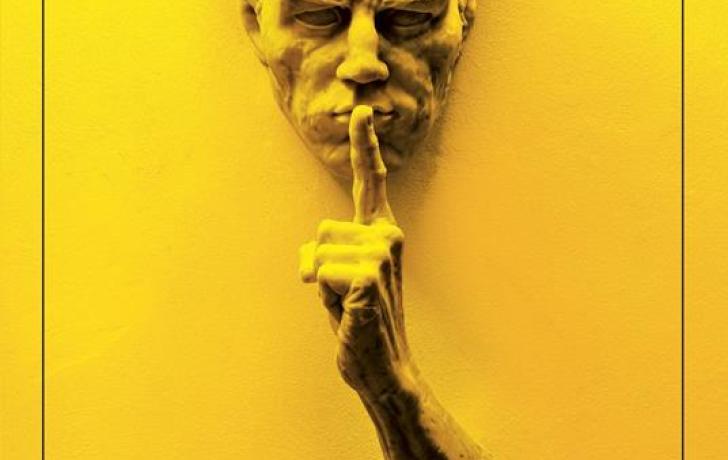Antonio Manzini is a renowned author of novels featuring the protagonist Rocco Schiavone, a Roman deputy-police chief transplanted to Aosta, played on television by the actor Marco Giallini.
But this is not the focus. The story unfolds in two parallel first-person narratives, with the two main characters confronting each other and telling their respective stories through the lens of their individual perspectives and thoughts, distinguished by the use of different fonts, both serif and sans-serif.
We are talking about it here because, although it is not immediately obvious, the setting of this narrative is the porticoes of Bologna, as mentioned somewhere in the book, with references that are both unprecedented and understandable, since it is a detective story. Manzini presents a dark, nocturnal and repelling portrayal of the porticoes, delving into their more menacing and frightening aspects, far from conventional picturesque and tourist rhetoric.
In fact, the porticoes provide the ideal setting for tailing people: you can quickly hide behind the shaft of a pillar or column when necessary (p. 68).
In addition, the actions of one of the main characters are set against the backdrop of the towers and porticoes of Bologna and its sometimes harsh climate: "It was under the towers that he came up with the idea. It was simple, cold, swift and decisive, like the wind that wound its way through the porticoes and across the square. He put on his woolly hat and quickened his pace as he walked to the station." (p. 103)
As the season changes, it gets hot and the city becomes an unwelcoming place, but this time it's from the point of view of the other main character, who sees Bologna in a different light. This perception deviates from the conventional notion of Bologna’s architecture, which is often regarded as cordial and comforting: "I have a look at the street from the window. I’m sweating. There’s a strong smell of urine coming from the porticoes. The city is so dark at night, it’s as if the lampposts have been fitted with 10 watt bulbs. It’s gloomy and can be a bit scary if you’re not used to it, if you weren’t born here. The walls and bricks of these porticoed streets are laden with history. And there are too many ghosts. You can hear them walking up and down the marble pavement and the cobblestones, they never leave, they have grown very fond of these walls, towers and windows. Maybe that’s why they keep the lights low and orange, so as not to disturb them...," (p. 188).
Finally, the porticoes, with their chiaroscuro effect, provide the perfect farewell setting: "I look out from the window and see, crossing the square, yet another missed opportunity in my life as it disappears behind the columns of a portico." (p. 283)
In this compelling detective story, the characteristic warmth of Bologna’s covered passageways thus becomes an unpleasant and alienating spectacle, the exception that proves the rule.
From the cover flap:
"The morning rush at dawn, breakfast at the bar, then nine hours of work in the court archives, a quiet dinner and lights out at ten o’clock: Carlo Cappai is a methodical and solitary man. An ordinary man. Nobody would suspect that he sees this disorderly collection of boxes, cards and folders as anything but useless paper. On the contrary, those ring binders speak for themselves, at times even proclaiming their unheard truth and demand for justice. They are the cases in which the court has failed to reach a just result, resulting in the acquittal of the guilty "for not having committed the act" – which in reality are just the usual petty power games. Cappai simply believes in taking justice into his own hands when the law fails to do so. He has spent the last 40 years waiting for the chance to punish a crime that has affected his life. Walter Andretti, on the other hand, is a journalist who has gone from the sports section, where he was doing well, to the news section, where he is unhappy. When his boss asks him to look into two recent murders, Andretti reluctantly begins to investigate, and after making some clumsy mistakes at first, he begins to realise that there is something strange about these deaths. A connection. Perhaps the same killer..."
Antonio Manzini
Tutti i particolari in cronaca
Milano, Mondadori, 2024

